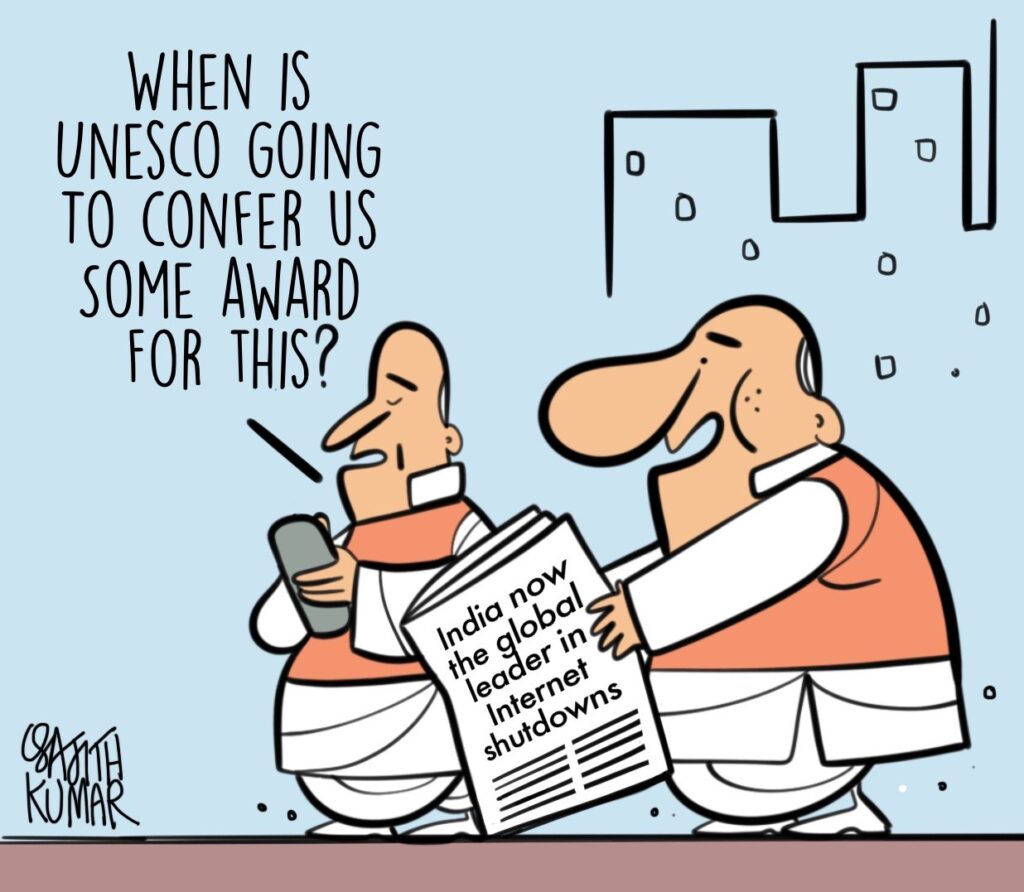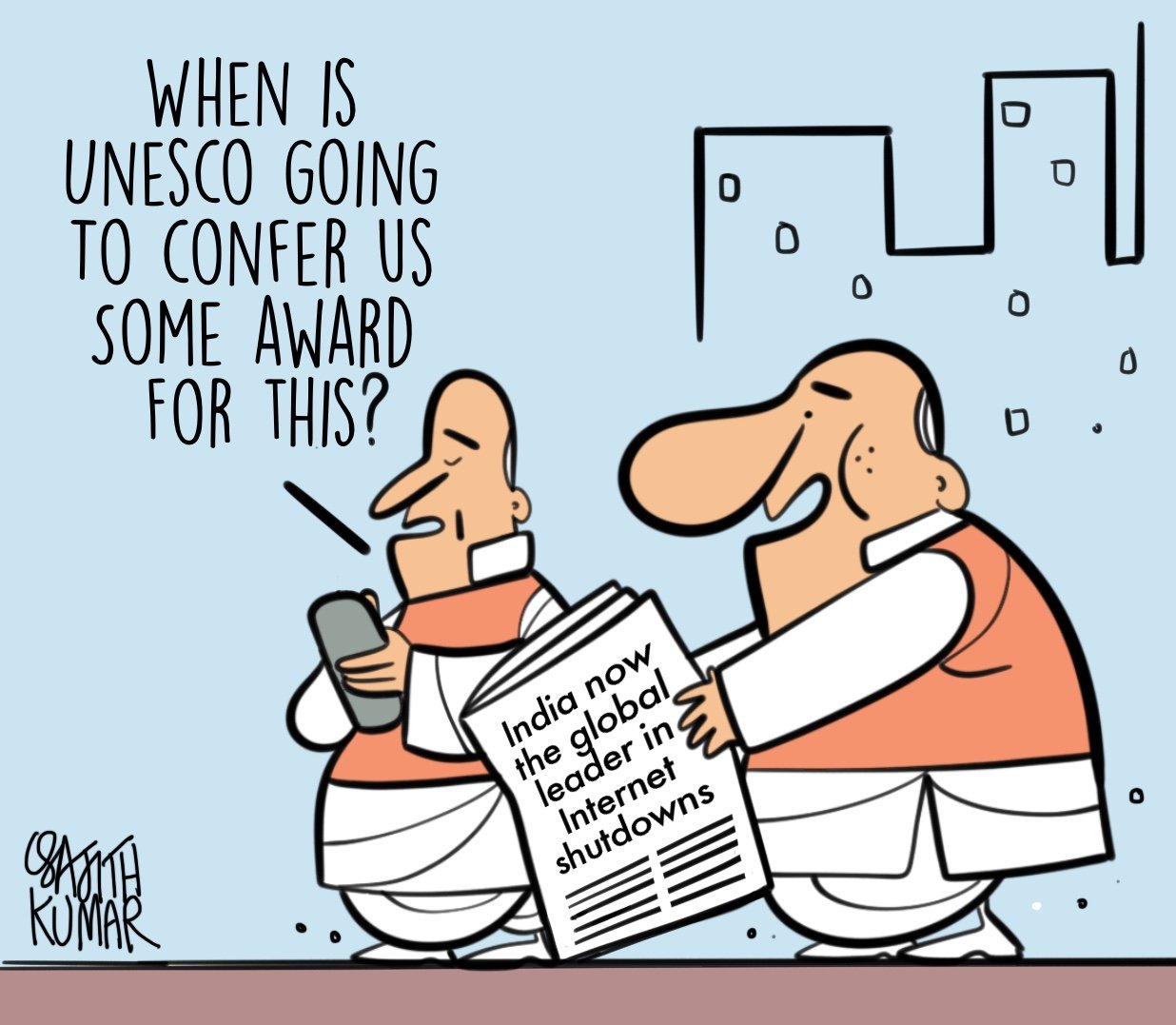Monitoring Shutdowns – Kishtwar, Jammu & Kashmir (June 28, 2023) #3

Today, we return to the Monitoring Shutdown Series, again belatedly. On June 28, the Additional Director General of Police, Jammu restricted mobile internet services to 2G speeds (less than 100 kbps) in District Kishtwar, Jammu for 20 hours (‘Suspension Order’). The Suspension Order was subsequently confirmed on June 29, by the Financial Commissioner (Home), Government of Jammu & Kashmir (‘Confirmation Order’). Now the Government of Jammu & Kashmir has not published the Suspension Order but has provided a copy of the Confirmation Order on its website. I have discussed a couple of other instances of suspension of internet services on this blog, and this is the first time we have a document from the state. This should ordinarily mark a change from the ‘I do not know’ analysis which was the theme of the previous posts. However, as we shall see, publishing orders means little when you intentionally choose to not reveal anything in them.
Procedural Compliance
- Did the concerned government publish the suspension order?
Here, Anuradha Bhasin v. Union of India, requires that the state publishes internet suspension orders. Strictly speaking, the Government of Jammu & Kashmir has not met that requirement as they have only published the Confirmation Order.
- Whether the order was issued under Section 5(2) of the Telegraph Act, 1885 read with Temporary Suspension of Telecom Services (Public Emergency or Public Safety) Rules, 2017?
Yes.
- Was the order was issued by the Home Secretary?
No.
- If the answer to 3 is no, was it issued by an officer authorised by the Home Secretary?
Rule 2(1) of the Temporary Suspension of Telecom Services (Public Emergency or Public Safety) Rules, 2017 requires that suspension orders are issued by the secretary in-charge of home department (‘Competent Authority’) of the relevant state government. In ‘unavoidable circumstances’, suspension orders may be issued by officers not below the rank of home secretary. In those cases, the orders must be confirmed by the Competent Authority within 24 hours.
Here, the Additional Director General of Police has purportedly been authorised by the home secretary to issue suspension orders. The Confirmation Order says so.
- If the answer to 4 is yes, has the order been confirmed by the Home Secretary within 24 hours?
Yes.
- Was the order placed before a review committee by the next working day?
Unclear. They Government of Jammu & Kashmir has not published the findings of the review committee.
- Did the review committee examine the order within 5 working days from the date of the order?
Unclear.
Substantive Compliance
- Does the order contain reasons justifying suspension of internet services?
This is where things get interesting. The Confirmation Order states that the Suspension Order mentions ‘apprehensions of misuse of mobile data services (3G/4G/5G) by anti national elements, for spreading rumours and inciting material on social media, with the aim of creating deterioration of public order’. So the Suspension Order did contain some reasons. At first glance, it seems alright. But when I re-read it, I realised it raises more questions that answers. For example, tt does not state why the apprehension arose or provide any details regarding the nature of rumours which may be spread.
This is similar to what Saurav Das pointed out regarding Collegium Resolutions a couple of weeks ago. He argued that the resolutions say a lot but do not in fact say anything by intentionally using vague language. For example, the Collegium recently transferred Justice Gaurang Kanth from Delhi High Court to Calcutta High Court for ‘better administration of justice’. The resolution did not say why justice would be better administered as a result of the transfer.
The Confirmation Order and in fact, most of the previous orders from Jammu & Kashmir, are similar. They intentionally use vague phrases such as ‘anti-national elements’, which do not have any definite meaning. In the Suspension Order the anti-national elements spreading rumours could be terrorists or separatists but could also be comedians or news channels or NGO’s, given how indiscriminatly the ruling party has christened Indians as anti-nationals in past few years.
- Whether there was a public emergency or an interest of public safety, as noted in order, justifying the issuance of the order?
I do not know. Misinformation on social media could result in public emergency. However, the vague nature of the Suspension Order makes it difficult to evaluate whether the situation in Kishtwar was a public emergency. The use of the word ‘apprehension’ in the order suggests that the situation on ground was peaceful and the Competent Authority suspended internet services pre-emptively. Literally interpreted, Section 5(2) of the Telegraph Act, 1885 does not permit pre-emptive suspension as it requires ‘occurance of any public emergency’.
- Was it necessary or expedient to issue the order in the interests of the sovereignty and integrity of India, the security of the State, friendly relations with foreign states or public order or for preventing incitement to the commission of an offence?
Same as above.
- Does the order adhere to the test of proportionality?
- Does it have a legitimate purpose?
Presumably as the authority wanted to prevent the spread of rumours by anti-national elements. Again, more information regarding who these elements are and what kind of rumours they wanted to spread, is necessary to answer the question.
- Is suspension 3G, 4G and 5G internet services rationally connected to fulfillment of that purpose?
Internet throttling is the intentional slowing down of internet services. The Government of Jammu & Kashmir has engaged in throttling here as it restricted internet services to 2G speeds (less than 100kbps). Anyone who uses mobile data knows that 2G services are only suitable for sending messages. For anything more meaningful, you require faster internet services. Thus, ‘anti-national elements’ could have used the internet even after the suspension for spreading rumours over messaging platform. Therefore, the Suspension Order is not rationally connected to fulfilment of the stated purpose.
- Are there alternative measures, apart from suspending internet services, which the government could have undertaken to achieve that purpose?
To elaborate on the point made above, the fact that 2G services were available for citizen, has little significance. As Internet Freedom Foundation argued in this petition for Jammu & Kashmir Private School Association, a speed more than that provided by 2G services is necessary for any meaningful use of internet services. Thus, while 2G still permits messaging services, it does not allow for video calling or browsing, preventing students from continuing with their education.
